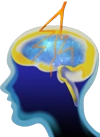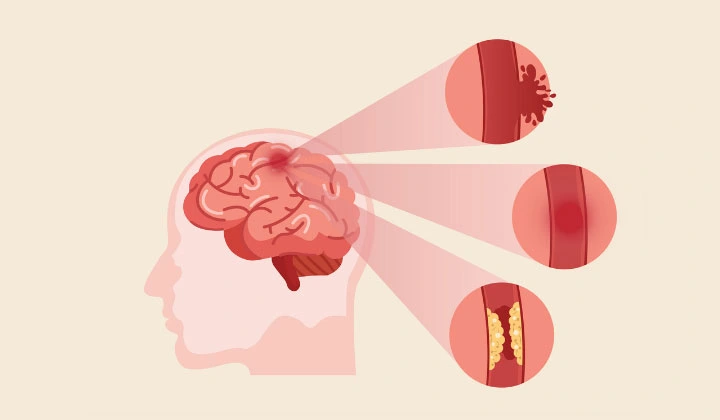brain stroke may have long-term implications on your health since it can cause brain damage, lifelong disability, and death. To avoid long-term consequences, you should know what to do right away if you have a stroke. That is, the sooner you act, the better. You cannot, however, act promptly unless you understand what stroke is, how it affects you, what causes stroke, and how it is treated. Don’t be concerned! The following information will assist you in resolving your stroke-related difficulties.
What is a stroke and how does it happen?
A stroke occurs when your brain does not get the blood it needs to operate correctly as a result of clogged blood arteries or bleeding in the brain. One of the most prevalent causes of stroke is the formation of blood clots in the blood arteries that deliver blood to the brain. This is referred to as an ischemic stroke. Another form of stroke in which blood vessels rupture is hemorrhagic stroke. Stroke may also occur as a consequence of a short blockage in the blood flow to the brain, which can persist for approximately 30 minutes or more, and in some cases, many hours – Trans Ischemic attacks (TIA). This disease often needs quick attention since it has the potential to develop into a full-blown stroke in the future.
Who is at risk?
Uninterrupted blood flow to the brain is provided by healthy arteries. However, because of plaque buildup, the arteries progressively constrict over time (fatty deposits). Plaque development is mostly exacerbated by unhealthy lifestyle factors such as diabetes, high cholesterol levels, high blood pressure, smoking, obesity, and excessive alcohol use. Furthermore, a sedentary lifestyle, stress, and high blood pressure may all lead to hemorrhagic stroke, which can be fatal. Women are more likely to have a stroke than males because they are more likely to have diabetes, hypertension, obesity, anxiety, mood swings, and depression. Furthermore, menstruation problems, hormonal changes, gestational diabetes, and the use of oral contraceptives all raise the risk of stroke in women.
What are the symptoms of a stroke?
Stroke symptoms include sudden confusion, dizziness, difficulty understanding others, difficulty seeing with one or both eyes, an uneven smile, drooping face, difficulty speaking or understanding, loss of balance, coordination, and difficulty walking; sudden severe headache; sudden numbness or weakness of the arm, face, or leg.
How can stroke symptoms be identified quickly?
If you know FAST, you will be able to identify stroke symptoms promptly. In actuality, the FAST test is a short exam that aids in the identification of stroke symptoms. Simply keep an eye out for the following symptoms:
Face: One side of the face droops or the grin becomes uneven.
Arms: One or both arms become weakened (it becomes quite difficult to hold the arms up)
Speech: The speaker’s speech gets slurred.
Time: Take prompt action if all of the aforementioned symptoms are present.
How is a stroke identified and treated?
Based on your medical history, your doctor will do a physical examination and then propose computed tomography or MRI scans. The sorts of tests and scans, however, are determined by your symptoms and the severity of your ailment. If your doctor confirms the diagnosis and determines that you are at risk of having a stroke, he or she will prescribe medications to help prevent or eliminate blood clots, as well as to lower cholesterol and blood pressure. Surgery may be necessary in certain cases to relieve brain edema and bleeding.
What are the preventive measures?
Physical, emotional, and psychological well-being are essential in preventing numerous forms of lifestyle-related disorders, including stroke. With a few little lifestyle modifications, you can maintain your body healthy and your blood vessels robust. To do this, engage in any sort of physical exercise that you like on a daily basis, whether it is walking, cycling, or even climbing stairs. Maintain a healthy weight by adding a range of colorful fruits and vegetables to your diet. If you smoke or use alcohol, you should stop smoking and minimize your alcohol consumption. If you have a previous health problem, such as diabetes, high blood pressure, or high cholesterol, or if you have had a Trans Ischemic attack (TIA) in the recent past, you should take additional care since you may be at a higher risk of having a full-blown stroke in the future.
For more information & consultation on Vertigo treatment, Call our expert Dr. Amit Shah – Consultant Neurologist in Mumbai on 9819561456 or Book an Appointment
Read our other Post:

